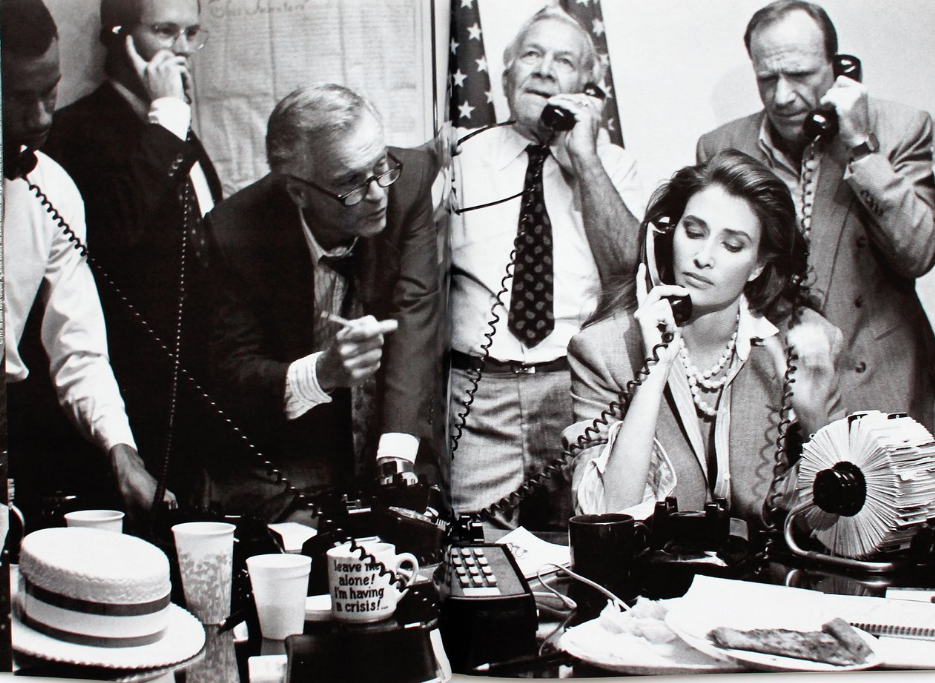FGC Book Club | Vol. 3

Running a business and keeping on top of work can be stressful! Amy Thomson, founder of Seen and cofounder of FutureGirlCorp, shares her top 5 books for spreading happiness and positivity into all areas of your lives. Happy mind, happy life!
One of the biggest challenges when you’re running a business or coming up with ideas is how to allow your brain to be the most productive that it can be. In my mind, being productive is essentially the key to success! These suggested books have made me think differently and would benefit anyone, whatever stage you are in your business or career. You don’t even necessarily need to be starting a business, it could be about being happier in your job or creating healthy relationships - just general tactics for being a happy person! - A x
1. How to Live a Good Life by Jonathan Fields
I read this book at the end of last year and I’m obsessed with it. It’s really interesting because it gives you methodologies for applying your way of thinking and for structuring your time. It’s just an easy to read and beautiful summary of how to live not just a good life but a productive one too. For me, one of the key indicators that I’m not being as productive at work is if I’m just working! It means that I’m probably repeating the same stuff and not getting any inspiration from external factors.
Key Takeaway... It gives you 3 different buckets that requires daily exercises to populate them. It’s not just about having really great work coming in. It’s also about your mind, body and soul - understanding the dynamics and the interplay between those different things.
2. Grit: The Power of Passion and Perseverance by Angela Duckworth
‘Grit’ is about the idea that intelligence alone isn’t enough to allow you to succeed. It’s actually about determination, your ability to constantly pick yourself up and being able to change direction when needed. From a personality point of view, determination, passion and perseverance are more important assets for success. It gets you to think about the formats you use to identify new challenges and new objectives, focusing on being streamlined in achieving your goals. For me, it’s literally a bible!
Key Takeaway... Failing is good and being determined to push through the negative stuff is really important. I find it fascinating when people ask me “how did you get to where you are?” or say “you’re so lucky”. There is an element of luck involved but it’s also that you fail at so many things, every single day! From that, you work out what you shouldn’t be doing to then prioritising what you should be doing. That’s just determination and not being afraid of failure! I’m a big believer in methodology and if you can create one for failing, it doesn’t feel so difficult to live by it. It gives you the ability to benchmark and say, “I’ve failed 10 things this month so that means I’m going to succeed at 2”. You then become excited for the things that are going wrong because you think “that was meant to happen so that I can get to the next level”. It’s like a game! That’s what really interesting about the book because actually determination and grit isn’t something that you’re born with, it’s not an IQ thing. It’s just resilience and anyone can have that.
3. Life Lessons From of Nietzche by John Armstrong
I love the idea of sitting around, reading philosophy books and contemplating life! There’s this whole series called Life Lessons, which is basically condensed philosophy. My favourite is Nietzche because essentially he’s a future thinker. He discusses this idea of reflecting from someone else’s point of view first. Perception is the way we construct reality, so when you perceive something to be a certain, factual truth, it’s actually just your constructed reality of that truth. This would be based on the different conversations you’ve had, your experiences and your personal preferences. A lot of Nietzche’s theory highlights other people’s point of view and understanding that your opinion is an opinion rather than fact. It opens your mind to different ways of engaging with people.
Key Takeaway... Not taking things personally! Whether you’re starting a business, starting out in a career or just trying to be a good human being, it’s really hard to not get upset by the way people operate or judge you. One of the big things I learned over the last couple of years is that some people are not going to like you. Haters gon’ hate! You need to understand it’s not you, it’s them. Not because they’re wrong but because that’s their experience of you. They might perceive you as intimating or difficult. You might have been having a shitty day and brushed past them in the lift. Thus, their perception of you is that you’re a bitch! It’s not that actually you are and you can’t take that perception personally because it’s not a reality for you. It’s important to live in and understand your own reality.
4. Modern Romance by Aziz Ansari
I became single last year for the first time in 12 years and with all these dating apps out there, I didn’t know how to navigate in this new world. I tried to read about what relationships mean now and came across the comedian Aziz Ansari! I thought his book was going to be a LOLs book but it was actually like an anthropological piece of research. He explores 3 countries: USA, France and Japan, looking at relationship culture and love in each one. He dissects what those social implications mean for how individuals talk about their relationships and love. It’s great!
Key Takeaway... Aziz showcases the different relationship cycles and the normality around things like ghosting and bread-crumbing, the psychology behind blue ticks and the endorphins they release and this new communication culture where it’s all via text. It’s not negative about being single or being in a relationship, it’s just an interesting skew of how you meet people in an age of Whatsapp, Tinder and New World technology.
5. Stuffocation: Living More With Less by James Wallman
This is about the art of living with minimal things and striping down your clutter. James Wallman expands on why things and possessions are social constructs, rather than being part of what we need. He shares different principles around how much you actually need in your life. There’s also an interesting documentary on Netflix called the Minimalists, if you're interested.










